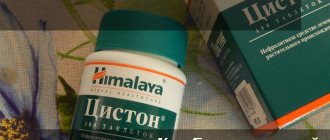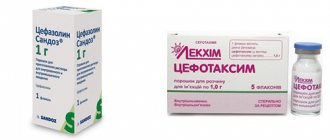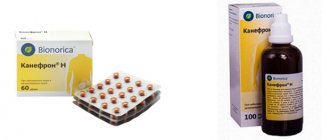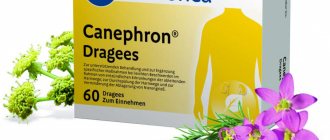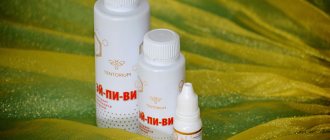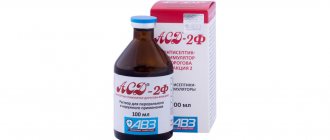Every year, an increasing number of men are faced with such a problem as disruption of the normal functioning of the prostate gland. Many men do not pay attention to deteriorating health and gradually developing symptoms, or they delay examination and diagnosis for a long time. That is why it is increasingly difficult to normalize the functioning of the prostate gland, since only timely and correct treatment can give a quick positive result. And most importantly, if left without proper treatment, interruptions in the functioning of the prostate gland can cause various complications, as well as the development of very serious and more intractable pathologies.
Currently, on the shelves of any pharmacy you can find a huge variety of different drugs for men that can prevent problems with the prostate gland at an early stage of their development. One of the most common and effective remedies that help with this problem are the drugs Afalaza and Afala.
"Afala" or "Afalaza": which is better?
These medicines can be bought at any pharmacy without a prescription. The drugs have a fairly long shelf life and are not overpriced. Many experts talk about the effectiveness of these products, one of the main positive aspects of which is their harmlessness to the patient’s entire body. If you use the drugs correctly, following all the instructions, then you can say with confidence that such treatment will allow the patient to avoid all sorts of side effects.
But which drug to choose? In the article we will figure out whether “Afala” or “Afalaza”: which is better, is there a difference between them, and will also talk about the rules for taking these drugs.
The difference between Afala and Afalaza
Prostatitis is a pathology against which impotence, high blood pressure and changes in the psycho-emotional state of a man can develop. The transition of the disease to a chronic form can threaten the development of a malignant prostate tumor. For the treatment of prostatitis in men, Afala or Afalaza is prescribed.
For the treatment of prostatitis in men, Afala or Afalaza is prescribed.
Afpla characteristics
The drug Afala is produced in the form of tablets. The active active component of the drug is antibodies to prostate-specific antigens.
The medicine contains additional components that play a supporting role, they are:
- magnesium stearate;
- MCC;
- lactose in the form of monohydrate.
Antibodies to the prostate-specific gene (PSA) are a protein substance. The production of this component is carried out by prostate cells and ensures not only the dilution of seminal fluid, but also ensures the regulation of the growth processes of prostate cells.
Antibodies in the composition of the drug are contained in the form of a water-alcohol mixture, which contains no more than 10-15 ng/g of the active ingredient.
The drug is produced in the form of white tablets, packaged in blister packs of 1, 2, 5 pcs. in a cardboard box.
The use of the drug reduces inflammation and swelling of the prostate and normalizes its functioning. The use of the drug for drug therapy can have a beneficial effect on urodynamics and reduces the volume of residual urine. Under the influence of the drug, the tone of the muscle fibers of the urinary tract is normalized.
The drug has proven itself in complex therapy of dysuric disorders.
Afala is prescribed for dysuric disorders - frequent urge to urinate.
The drug is prescribed when a man is diagnosed with:
- benign prostatic hyperplasia (stages I and II);
- chronic or acute prostatitis;
- dysuric disorders - frequent urge to urinate, including at night, difficulty urinating, pain or discomfort in the perineal area.
Contraindications:
- hypersensitivity to the components of the homeopathic drug;
- congenital galactosemia;
- glucose or galactose malabsorption syndrome;
- congenital lactase deficiency.
When using the medication in recommended dosages, patients do not experience any side effects.
If unpleasant symptoms and undesirable effects occur during therapy, it is recommended to consult a doctor to adjust the dose used in treatment.
In case of an overdose, the patient may experience impaired digestion, vomiting and a feeling of nausea.
In the process of drug treatment of prostatitis, it is allowed to combine Afala with other drugs used to treat and prevent the development of benign prostatic hyperplasia and prostatitis.
The medicine can be purchased at a pharmacy without a doctor's prescription. The shelf life of the drug is 3 years. The cost of the medicine is 245 rubles.
Characteristics of the drug "Afala"
It is necessary to clarify the fact that the drug “Afala” belongs to the category of homeopathic remedies. The drug is used in the treatment of various dysfunctions of the prostate gland. The drug is also used in cases where such dysfunctions are chronic. The main components of this drug are prostate-specific antigen antibodies. They are protein components that are produced by prostate cells. It is these components that are important in its normal functioning, since these proteins are involved in almost all the most important processes of the prostate gland. These protein components of the drug are involved in the liquefaction of seminal fluid and play a very important role in the growth of stromal cells.
"Afala" - homeopathic remedy
Long-term use of the drug shows that Afala can affect inflammatory processes in the body, gradually reducing them, and also reduce swelling of the prostate, as a result of which the patient feels positive changes in the process of urination. At the same time, men also note a gradual decrease in pain when going to the toilet - this is because the drug has a positive effect on the urinary tract, returning them to normal tone. Moreover, the use of the drug "Afala" regulates the process of urination, which eliminates the level of residual urine in the body. This fact is very important, because the occurrence of residual urine can lead to serious diseases of the kidneys and urinary tract.
Description of the drug
"Afala" is a drug that comes in the form of tablets. There are twenty of them in each package. The tablets are intended for resorption.
The drug is available in tablets
The drug has several forms of release: one cardboard box can contain one, two or five plastic packages with cells. Accordingly, at the pharmacy you can buy packages of twenty, forty or 100 tablets.
Video - Contents of the Afala drug package
Advantages of the drug "Afala"
- One of the few drugs to combat prostate dysfunction, which acts on the affected area without spreading throughout the body.
- The pain syndrome noticeably decreases after just a few doses of the medication.
- Quickly relieves swelling of the prostate gland, which has a positive effect on the process of urination.
- The process of urination for the patient becomes more comfortable after just a few doses of the drug.
- The medicine must be taken in a course for four months. The drug is used two tablets in the morning and evening.
- This medication does not have the ability to act in any way on other foreign drugs, which is why it can be used regardless of what additional medications the patient uses during the course.
- After the course of treatment, the therapeutic effect of the drug persists for quite a long time.
This drug helps fight urination problems and prostatitis.
Indications and contraindications for the use of Afala
The drug is recommended for use when detecting an increase in the volume of the prostate gland. Most effective in the initial stages of pathology. Also prescribed for various urinary dysfunctions.
Important! This drug is used in combination with other drugs for the treatment of acute and chronic prostatitis. In this case, “Afala” acts as a pain reliever and also reduces the inflammatory process.
The main contraindication to the use of Afala is intolerance to the components of the drug
Even though Afala is a homeopathic medicine, this remedy also has its contraindications for use. The main contraindication to Afala therapy is the patient’s individual intolerance to any of the components included in the drug. In this case, it is advisable to choose another remedy for the patient to combat prostate dysfunction.
Side effects of the drug "Afala"
The instructions that come with the drug do not contain information about any side effects. But at the same time, such information does not guarantee that side effects cannot occur in any patient during the course.
Note! Individual “side effects” may manifest themselves in the form of minor disruptions in the gastrointestinal tract, as well as local allergic rashes.
If a person accidentally increases the dose of the drug, then an overdose may manifest itself as more pronounced dyspeptic disorders.
Use of the drug
Despite the fact that this medicine is widely used, before purchasing it, you must consult with a specialist, having first undergone all the necessary examinations. In this case, the doctor will either approve the choice of this drug or prescribe another therapy to eliminate prostate pathology.
It must be remembered that self-medication of the prostate gland and independent choice of drugs can only worsen the patient’s condition, increasing the inflammatory effect and the very development of the pathology. Moreover, when choosing self-medication, a person wastes a lot of time, because early treatment of any disease guarantees a quick and effective recovery from the disease.
Don't try to heal yourself
According to statistics, many men are afraid or embarrassed to be examined for changes in the prostate gland, even after the appearance of visible symptoms that greatly interfere with normal life. Moreover, this condition greatly affects the psychological health of the patient, and the triggering of the disease will only have a stronger impact on his poor health. That is why, if there is a suspicion of prostate dysfunction, every man should go for examination without hesitation.
The instructions for use of the drug indicate that the tablets should be taken orally. It is necessary to pay attention to the fact that these tablets must be dissolved in the mouth without swallowing or washing them down; You should also not combine the drug with food.
Treatment with the drug "Afala" is quite long. On average, standard drug treatment for prostatitis lasts about sixteen weeks. If the disease is advanced and there are obvious urinary disorders, as well as severe pain, then, depending on the individual diagnostic results, the specialist may increase the dosage of the drug in the first two weeks of therapy.
The course of treatment with Afala is about 16 weeks
Note! In most cases, one to four months after completing the course, it is recommended to start treatment again for preventive purposes.
Features of the use of the drug
Please note that this drug contains lactose. It is this component that limits the circle of people who can use this medicine. This fact is very important in choosing the right medication for therapy, since it is strongly not recommended for people with congenital lactose intolerance to use this drug.
Afala contains lactose - this is important to take into account for people with hypolactasia
Also, the drug does not have the ability to in any way affect brain activity. That is why, when undergoing a course of treatment, there are no contraindications to driving a car or operating any complex equipment or mechanisms.
It is necessary to pay special attention to taking this medicine simultaneously with other homeopathic remedies, since the drug “Afala” itself belongs to this group of medicines. This is important because the simultaneous use of two or more homeopathic remedies can lead to an overdose of the drug, which in turn will cause pronounced adverse reactions of the body, such as dyspeptic intestinal disorders or allergic rashes.
You should not combine Afala with other homeopathic medicines
The drug "Afala" itself is also an immunomodulator, which means that this medication can help not only normalize the functioning of the prostate gland, but also increase the protective functions of the entire body as a whole. The drug also improves immunity at the cellular level.
Action of Afalaza
Afalase is produced in the form of white tablets intended for resorption.
The product contains 2 active components:
- PSA;
- antigen to endothelial NO synthetase.
Additional ingredients of the medical product are magnesium stearate, MCC and lactose monohydrate.
Endothelial NO synthetase is a nitrogenous oxygen compound produced by the endothelium. This compound ensures the maintenance of the tone of the vascular and lymphatic walls, improves blood flow and reduces the risk of blood clots.
The NO synthetase antigen slows down the process of nitrogen release, which leads to congestion in the pelvic organs and the appearance of weakness in the walls of the vascular system. To suppress the negative impact of the antigen, Afalase contains affinity-purified antibodies.
The active components of the drug are applied to lactose granules in the form of a water-alcohol mixture. Microcrystalline cellulose plays a formative role in the drug, and magnesium stearate ensures long-term preservation of the properties of the drug.
Thanks to the presence of 2 components, Afalase acts not only as a drug for the treatment of adenoma and prostatitis, but also helps improve potency and men's health.
Thanks to the presence of 2 components, Afalase acts not only as a drug for the treatment of adenoma and prostatitis, but also helps improve potency.
Antibodies to PSA provide suppression of the antigen in the blood plasma, thereby strengthening the epithelial cells of the prostate. As a result of this effect, a decrease in the degree of swelling and inflammation is observed.
Under the influence of antibodies to the endoepithelial NO synthetase antigen, blood flow increases and congestion in the genitourinary organs is eliminated. This component of the drug protects endothelial cells from the negative effects of the antigen.
Indications for use of Afalase are:
- decreased erection of various origins;
- improvement of blood circulation in the pelvic organs;
- age-related decrease in sexual activity;
- short duration of sexual intercourse;
- prevention of complications after surgery.
The use of the drug in the postoperative period reduces the likelihood of developing complications and pathologies, and ensures acceleration of the recovery and tissue healing processes.
Contraindications:
- hypersensitivity to the components of the product;
- congenital galactosemia;
- glucose or galactose malabsorption syndrome;
- congenital lactase deficiency.
The drug is well tolerated by patients and does not cause side effects if used in full accordance with the instructions.
Afalase can be purchased at a pharmacy without presenting a prescription from your doctor. The cost of one package is 500 rubles.
Characteristics of the drug "Afalaza"
Compound
The main components that make up this medication are antibodies to two different substances, these are:
- endothelial HO synthase;
- simple specific antigen.
The dosage of these antibodies in one Afalase tablet is 0.006 g of each component.
Antibodies first undergo special purification in order to get rid of other “extra” proteins. Antibodies are also purified from donor DNA components - it is this fact that makes this drug completely safe for use, and this purification procedure allows the drug to have a low likelihood of developing any side effects.
The dosage of the active substance in the drug "Afalaza" is 0.006 g
In addition to components such as antibodies of a specific type, Afalase also contains inactive substances - those that cannot have any effect on the patient’s body;
- magnesium stearate;
- cellulose;
- lactose.
Note! While taking the drug, inactive excipients are dissolved in the oral cavity under the action of salivary enzymes. This is necessary in order to release the necessary active elements.
Video - Drug "Afalaza"
The effect of the drug on the body
When taking the Afalase tablet, the active substances are broken down in the oral cavity with the help of salivary enzymes, after which they are absorbed and distributed throughout the body using the sublingual artery. If enzymes manage to get into the stomach with saliva, then they are absorbed into the blood through its wall. After this, the active substances enter the prostate tissue through the bloodstream, where they exert the necessary effect:
- accelerate metabolic processes in prostate tissues;
- relax the walls of blood vessels, eliminating spasms and allowing blood flow to normalize;
- restore damaged cells;
- gradually bring the prostate gland to normal size;
- accelerate blood in the pelvic area, eliminating any congestion that has arisen;
- allow sperm to increase their activity by liquefying the ejaculate.
"Afalase" has a positive effect on the body
How does Afalaza affect the human body?
The drug affects cells, increasing their immunity, eliminating swelling of the prostate gland, and also reduces and prevents the spread of the inflammatory process. The drug also has a positive effect on other organs of the pelvic area, since the drug has the property of dispersing stagnant blood.
The drug can relieve inflammation in the prostate gland
Most reviews about the drug "Afalaza" are positive. Men share their results of therapy, saying that after just a few doses of this medicine there is an improvement in urination and elimination of pain. Also, almost all patients taking Afalaza report restoration of erectile and reproductive functions.
Release form of the medicine
Afalaza is available without a prescription and is sold in pharmacies in the form of tablets in plastic blisters of twenty pieces. In pharmacies, the drug can be found in cardboard boxes that contain one, two or five blisters.
Before you start taking this medication, you must carefully read the instructions for use of the drug. In it you can find information not only about the indications for the use of Afalaza, but also about contraindications to taking this medication.
Before using the drug, you should consult your doctor
Indications for use of Afalaza
This drug is prescribed by a specialist if a man has the following complaints:
- decreased erectile function;
- difficulty urinating. In this case, the symptom will be not only a violation of urine flow, but also an increased urge to urinate;
- the presence of inflammation, both acute and chronic;
- the patient has prostate adenoma of the first or second degree.
Important! Also, a doctor may prescribe this medication to a patient to prepare a man for any surgical intervention related to the prostate gland.
"Afalase" is prescribed for difficulties with urination, inflammation, prostate adenoma
In the postoperative period, the use of the medication will also not be superfluous, because Afalaza has the ability to regenerate tissue and increase blood flow, which has a positive effect on rapid recovery after surgery.
Reviews from patients indicate the high effectiveness of therapy with this drug. Men who have completed a course of drug therapy with Afalase say that the drug has no serious side effects, and in addition creates quick pain relief and relaxing effects. One of the most important properties of the drug is the lack of addiction with long-term use of the drug. Also, when stopping taking Afalase, the patient’s well-being does not deteriorate.
Contraindications to the use of Afalaza
This drug has only one contraindication for use - individual intolerance to any component included in this drug. No intolerance or allergic reactions to the active components of the drug themselves - antibodies - have been identified at the moment. But at the same time, allergic reactions can occur due to the excipients that are present in the drug "Afalaza", which is why you should consult a doctor before using the drug.
The only contraindication to taking Afalase is individual intolerance to the components of the drug
Features of the use of "Afalaza"
The dosage of the drug is calculated based on the diagnosis, the degree of development of the disease, as well as the patient’s complaints. For example, with obvious dysuria, accompanied by pain, the patient is prescribed to take pills during an exacerbation of the disease. In this case, it is recommended to take the drug for two days, two tablets at a time. After improvements occur, the dosage is reduced.
It is important to observe the dosage of the drug
If the patient has any diseases that are not associated with an acute inflammatory process, then in this case the medication is prescribed, two tablets in the morning and in the evening.
It must be remembered that these medications must be dissolved in the mouth until the medication is completely dissolved. If you swallow the tablet and wash it down with water, the therapy itself will not bring any effects. This happens because the active substances reach their destination faster, being absorbed into the blood through the oral cavity.
On average, Afalase therapy lasts from four to sixteen weeks. If an exacerbation occurs, the doctor may recommend that the patient undergo repeated drug therapy a month after completing the first course.
The drug "Afalaza" cannot affect any other drugs, which is why during the course of treatment with this drug it is allowed to use other drugs, regardless of their pharmacological group.
Note! It must be remembered that this drug should not be taken in combination with alcohol or other alcohol-containing substances.
Side effects are rare when taking Afalase
After taking the drug "Afalase" there are almost never any side effects. But if the proper dosage of the drug and the time of its administration are not observed, as well as if the duration of the course of therapy itself is increased, the patient may experience symptoms of a drug overdose:
- nausea or sudden vomiting;
- the occurrence of intestinal dysfunction;
- flatulence.
Important! Such symptoms can be caused by an overdose of the auxiliary components of the medication, since the main active substances cannot cause discomfort in the patient.
Storage of the drug
The medicine must be stored at a temperature of at least twenty-five degrees. The drug should not be stored in the refrigerator. It is necessary to store the drug packaging out of the reach of children. The medication can be used for 3 years from the date of manufacture.
The use of the drug without prior consultation with a specialist is not allowed. It is also prohibited to independently replace a drug with its analogue, since each drug with a similar effect may contain different components, as well as have individual indications and contraindications, different daily dosages and duration of administration.
What are the differences and similarities between Afala and Afalaza?
Afala and Afalaza are similar and interchangeable drugs for drug treatment of adenoma and prostatitis. Medicines can be used both as monotherapy and as part of complex treatment with other drugs.
The difference between the drugs is the quantitative content of antibodies to PSA. Afalase contains 2 times more of this component.
The second difference is the presence in the preparation of antibodies to the endothelial NO synthase antigen. These substances make it possible to expand the list of indications for the use of the drug.
Characteristics of the drug Afalase
The active component of the drug is the same as the previous product. Also contains antibodies to endothelial synthase. The medicine helps restore the prostate gland with adenoma and other benign changes. The drug accelerates blood circulation in the reproductive organs.
Afalase accelerates blood circulation in the reproductive organs.
The medication inhibits proliferation processes, providing an anti-inflammatory effect. The medicine improves urination, supports erectile function and promotes the restoration of prostate tissue. The tablets eliminate swelling and discomfort in the prostate area.
Treatment reduces the risk of postoperative complications, accelerates tissue regeneration, and improves sperm composition.
The drug is used for vegetative-vascular disorders in men during menopause, prostatitis, erection problems, benign changes in the reproductive organs and urination disorders. The therapeutic course often does not exceed 1-4 months. In rare cases, the medication provokes allergies.
If the amount of the drug is exceeded, stool disturbances, abdominal discomfort, nausea and vomiting may occur. In this case, symptomatic treatment is provided. The medicine is not intended for the treatment of women. The medication does not interact with other drugs. If necessary, it can be used as a means of complex therapy.
Onorrhea in men: symptoms. The most effective medications for impotence. Urology: what is it? More details>>
Doctors' opinion
Lelyavin K. B., urologist, Ryazan
Afala is an ineffective drug. There is no evidence base. Scientific work carried out on this medical product is in doubt. Full placebo effect. It is not a medicine, which must be indicated on the packaging. I have never prescribed this composition and will not recommend it.
Lychagin S.V., urologist, Tambov
Afalaza has no side effects, as well as any effects, respectively. Low price. There is no scientific evidence of the effectiveness of the product. No clinical studies.
I never prescribe. Sometimes patients take the drug after hearing an advertisement. They are assured of its effectiveness. I’m not canceling, because... If the patient believes in effectiveness, then arguing most often makes no sense. If examinations reveal abnormalities, I prescribe additional medications according to standards.
Iskorostinsky V. Yu., urologist, St. Petersburg
Afalaza has absolute safety. Unproven clinical effectiveness, like all homeopathic products. If it cost 10 rubles, then it could still be prescribed at least as a placebo. I never prescribe a remedy consisting of “nothing”. Homeopathic formulations are unscientific. I agree with the global trend to oblige manufacturers of homeopathic compositions to write on the packaging that there are no clinical studies confirming their effectiveness.
Panov V.S., urologist, Voronezh
Afala is a good combination drug for problems in men’s health; I recommend this drug both in monotherapy and in the complex treatment of diseases in the male sphere and for preventive measures for these problems. What is attractive about this drug is the minimum number of side effects. The product has positive reviews from patients.
Yunasheva. V. Yu. urologist,
Afala contains an active substance, the effect of which on the body has not been studied; when prescribing a drug, it is impossible to predict the consequences of such a prescription without knowing its composition and pharmacodynamics. Homeopathy is not officially medicine; any doctor who, when prescribing, says that he helps and praises him, should immediately trash his diploma.
Use of the drug "Afala" in the treatment of BPH
12.05.2013
5751
0
Today, benign prostatic hyperplasia is one of the most problematic diseases of the male genitourinary system. The negative quality of life of many men with prostatic hyperplasia is significantly influenced by the symptoms of the lower urinary tract. In this regard, modern drug therapy for this disease is represented by three groups of drugs: 5-alphareductase inhibitors (virtually do not affect the clinical symptoms of BPH during the first three to four months of treatment, but significantly improve the long-term prognosis of the disease), alpha-blockers (not influencing the tissue of the prostate gland, they effectively influence the dynamic component of obstruction, which contributes to the rapid relief of clinical symptoms of BPH: according to research, clinical symptoms improve by 20 - 50%, and urodynamic indicators - by 20 - 30%) and phytotherapeutic agents (the most studied is Serenoa repens extract).
Quite often, with such a disease, there is a need to use surgical treatment methods, since in a number of patients it is not possible to achieve the desired effect in the treatment of BPH, despite the high effectiveness of modern drugs. In addition, numerous side effects are also observed when taking them, which forces urologists to cancel the prescribed drugs.
The most appropriate treatment for BPH, according to most researchers, is first of all to restore normal PSA activity, since this substance regulates cell proliferation stimulated by insulin-like growth factor. With this disease, there is a fairly active reaction of the immune system to PSA - this is what led scientists to create the drug Afala, which is directly intended for the treatment of BPH, since thanks to the antibodies it contains to the prostate-specific antigen, it helps slow down the atrophic processes of the glandular epithelium and increases the zinc content in prostate tissue three times, which generally leads to the restoration of the functional activity of the prostate gland.
Two large studies have been conducted on the effect of Afala in the treatment of BPH. The first study of urologists from Rostov-on-Don (I.A. Aboyan, V.E. Aboyan, O.V. Zinkovskaya, V.A. Sknar, CDC “Health”) included 41 patients diagnosed with BPH, average age which ranged from 56 to 74 years. In general, when selecting study subjects, patients with the following criteria were excluded: age less than 45 and more than 75 years, symptoms of the disease are moderately severe, prostate volume was less than 25 ml, maximum urine flow rate was more than 15 ml/sec and less than 5 ml/sec. sec, as well as patients who have undergone surgery on the bladder or prostate gland in the past, patients with tumor diseases of the genitourinary system, with neurogenic disorders and with a urine volume of more than 150 ml.
The study included transrectal ultrasound examination of the prostate to determine organ volume, uroflowmetry to measure residual urine, PSA level determination, and a standard IPSS-QoL questionnaire.
All subjects took the drug Afala, two tablets twice a day for three months. At the first, third and seventh weeks of treatment, the patients' condition was assessed using the above questionnaire. Before the start of the study, basic data on the health status of the subjects were obtained: the average volume of the prostate gland in patients participating in the study ranged from 17.8 to 52.8 ml, the volume of residual urine was 14.5 - 30.6 ml, and the PSA level – 2.52 – 4.35 ng/ml, average maximum urination rate – 2.1 – 9.8 ml/sec. In a subjective assessment of the condition, the average IPSS score was 13.2, and QoL was 4.6 points. When treated with afala, these indicators decreased to 6.5 and 2 points, respectively. Other indicators also improved: the average volume of the prostate gland decreased slightly - it became 16.4-49.8 ml, the PSA level decreased to 2.2-3.51 ng/ml, the average residual urine amount became 4.8-6 ng/ml, and the maximum urinary flow rate increased to 3.7-13.8 ml/sec. In addition, none of the subjects reported any side effects.
The second study was conducted at clinical centers in several cities. Three groups were created among the subjects: those taking placebo (55 people), taking Afala (132 patients) and an open comparison group (54 men), the total number of subjects was 241 people. The duration of treatment in the first group was 4 weeks, in the second – 16 weeks, where patients received placebo or afala, respectively, two tablets four times a day, and in the open comparison group patients were asked to take Prostamol Uno at a dose of 320 mg/day.
The study also included patients aged 40–70 years (mean age 63.5 ± 0.49 years) with moderate symptoms of BPH with a prostate volume of more than 25 cm3, the maximum urine flow rate was 5–15 ml/sec. Patients were excluded from the study based on the following criteria: residual urine volume more than 150 ml, suspicion of prostate cancer, early surgical interventions on the prostate or bladder, serum PSA level more than 4 ng/ml.
The effectiveness of treatment with these drugs was assessed by improving the quality of life of patients during treatment, reducing the severity of symptoms of the disease, and improving urodynamic parameters.
Four weeks after the start of the study, the effectiveness indicators in the second group differed significantly from the first both in urodynamics and in the clinical manifestations of BPH. In the placebo group, the decrease in IPSS was 0.9 ± 0.4 points, Qmax did not change, and in the afala group, after four weeks of treatment, the decrease in IPSS was 1.9 ± 0.3 points, Qmax increased by 13.3 ± 2.4% .
Thus, both drugs significantly reduced the overall score by week 16; it decreased by more than 40%, and in half the IPSS decreased below 8, that is, it reached the level where pharmacotherapy is no longer carried out. The improvement in urodynamics in the Afala group was 45%, in the Prostamol group – 36%. The improvement in quality of life was also slightly more pronounced in the Afala group.
In addition, according to the results of TRUS, in the afala group by the end of treatment there was a significant decrease in the volume of residual urine (from 31.0 ± 3.2 to 12.9 ± 1.7 ml, p <0.001) and a small but significant decrease in prostate volume (from 44.6 ± 1.3 to 41.9 ± 1.3 cm3, p <0.01).
The administration of Afala at a dose of eight tablets per day for 16 weeks was also safe for patients. Just like in the first study, there were no cases of side effects or adverse events when taking this drug. The indicators of a general blood test, a general urinalysis and a biochemical blood test were within normal values both before the start of treatment and at the end of it.
In general, in patients from the afala group, the levels of free and total PSA in the blood serum remained within normal values, and in some cases they completely decreased - by 17.6 and 21.7%, respectively. There were no changes in the free PSA and total PSA ratios during treatment with afala - they remained within normal values. In the third group - in the prostamol group - the PSA content in the blood serum did not change.
Thus, as shown by the results of two controlled randomized clinical trials, afala is an effective and safe treatment for patients with BPH. When using this drug in patients with BPH, there is a decrease in the amount of residual urine and an improvement in urodynamic parameters, which in turn is associated with an improvement in bladder trophism and its function.
All of the above suggests that the drug Afala, containing ultra-low doses of antibodies to a specific prostatic antigen, is a choice for conservative treatment of BPH with moderate urinary disorders due to the elimination of irritating symptoms and good tolerability of treatment.
Topics and tags
BPH
Afala
Comments
To post comments you must log in or register
